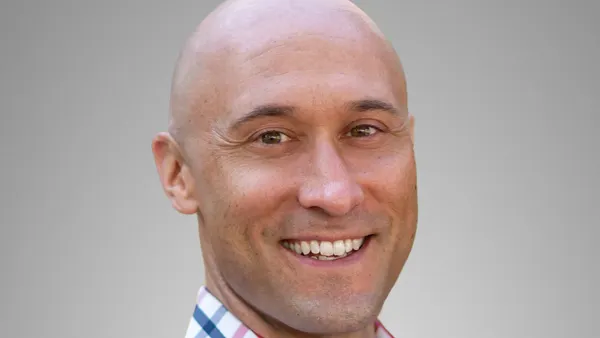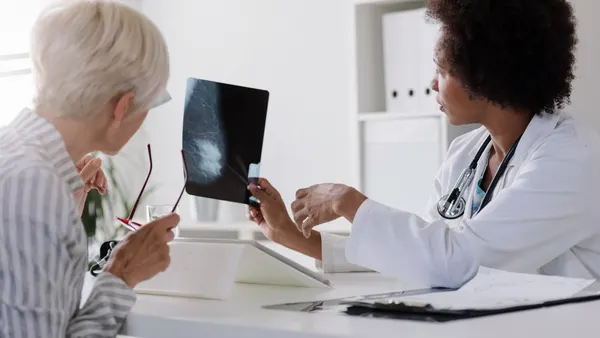Dive Brief:
- If anyone was wondering whether Apple is serious about healthcare, recent reporting that the Silicon Valley tech giant currently has between 40 and 50 physicians working on various teams should answer the question.
- Hires include Rajiv Kumar, a Stanford University pediatric endocrinologist who used HealthKit to help patients manage diabetes, and Ricky Bloomfield, a Duke University physician and health IT expert. Many haven't updated their LinkedIn pages or disclosed their Apple roles, CNBC reports, citing two people with knowledge of Apple's hiring.
- The growing medical presence could convince other doctors that health apps for Apple Watch and other devices are worth investing in and raise the company's image as a serious medical solutions company.
Dive Insight:
Tech companies have increasingly had their eyes on the digital health space as providers and payers look to areas like Big Data analytics and AI to improve diagnosis, increase workplace efficiencies and reduce clinical and administrative costs.
Funding for digital health startups soared to $3.3 billion across 93 deals in the third quarter of this year, according to Rock Health. Investment for the year hit $6.8 billion, outpacing 2017's yearlong total of $5.7 billion.
With a stable of medical experts nearing 50 strong, Apple apparently sees itself in healthcare for the long haul.
Since 2016, the company has acquired digital health companies, including personal health records platform Gliimpse and sleep tracking startup Beddit, which detects heartbeats and breathing rhythms and relays information via Bluetooth to a companion app on iPhone or other compatible device.
The company is also rumored to be working on noninvasive blood sugar tracking sensors and assembling a team to develop custom processors to interpret health-related data collected by sensors in wearables and other devices.
Apple ventured deeper into healthcare with the September FDA approval of a first-of-its-kind electrocardiogram monitor in its latest Apple Watch. The embedded ECG app is classified as a Class II medical device and indicated for over-the-counter use by adults over the age of 22.
This year also saw the launch of a group of primary care clinics for Apple employees and the debut of personal health records on iPhones.
In yet another venture, Apple is partnering with Zimmer Biomet to study Apple Watch in supporting patients before and after knee and hip replacement surgery. A clinical trial will assess the impact of mymobility, an app that connects patients to surgical care teams via Apple Watch, on outcomes.












